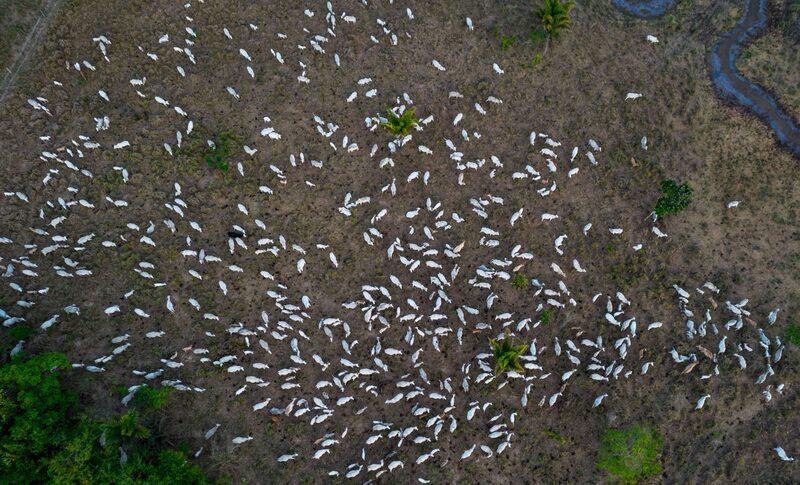Bloomberg — A $200 million loan for Marfrig Global Foods SA (MRFG3) has fallen apart amid growing concern that Brazil’s second-biggest beef producer is fueling deforestation in the Amazon.
The Inter-American Development Bank’s private-sector arm shelved a plan to lead the syndicated loan after a series of setbacks. First, a vote on the financing was pushed from December to May, according to two people familiar with the matter. The bank couldn’t agree with the company on environmental targets, as well as the financial terms of the loan, said one of the people. Now, the loan is inactive, according to IDB’s website, and will no longer go up for a vote.
Activist groups including Friends of the Earth started pressuring the bank to abandon the loan last year, alleging that the IDB credit line would violate the bank’s sustainability policies. For more than a decade, Marfrig and its biggest rivals like JBS SA have committed to ridding their supply chains of animals born or raised on deforested land.
Both companies say they set the highest standards for their suppliers, but a Bloomberg investigation published last month showed how they’re using a greenwashed version of an animal’s origin and working within a legal system so full of loopholes that prosecutors, environmentalists and even ranchers themselves consider it a farce. Amazon deforestation is now at a 15-year high, with more than 70% of illegally cleared land turning into pasture to graze animals.
The loan, in which $43 million would have come from IDB Invest and $157 million would have been syndicated, was announced in April 2021 to fund Marfrig’s Plano Verde+, or Green+ Plan, aimed at strengthening the sustainability of its beef supply chain.
Marfrig in an email confirmed that the loan is no longer under consideration and didn’t comment further. The IDB said by email that it “came to the mutual agreement that the conditions were not ideal to move forward with the loan” after carrying out in-depth due diligence of Verde+.
“We hope the IDB Invest’s decision to drop the Marfrig loan sends a signal to other banks,” said Kari Hamerschlag, deputy director of food and agriculture at Friends of the Earth U.S. “Public development banks cannot keep funding industrial livestock operations like Marfrig, which drive the climate crisis with deforestation, biodiversity loss and methane emissions in Brazil and globally.”
Marfrig’s 2031 bond traded 0.12 cent lower Wednesday at 88.18 cents on the dollar to yield 5.65%. Since the start of the year, the notes have fallen 7.4 cents.
Also read:

